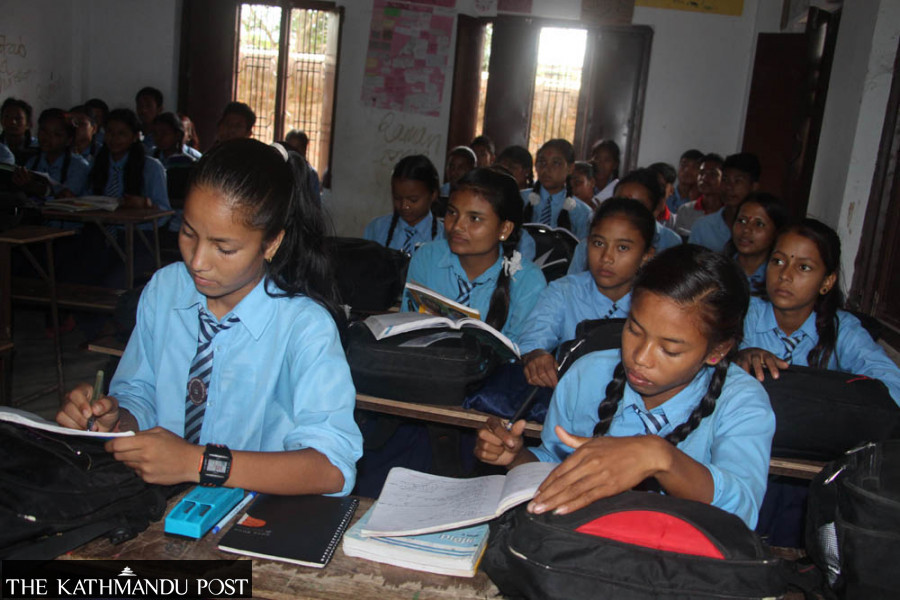Editorial
Reshaping education
The critical issue is for the authorities to improve the overall quality of education.
The National Education Board on Wednesday published the results of what is usually considered to be a rite of passage in a student’s life—the Secondary Education Examination (SEE). Formerly known as School Leaving Certificate (SLC), the rechristened SEE is still somewhat dreaded by the candidates. Students who have appeared in the SLC exams are very aware of the panic that grips them on the day the results are released. It still makes for unpleasant memories for students who were debarred from progressing in their academic career because they couldn’t pass a particular subject.
The question that needs answering is whether the name change has brought about a difference in how it has impacted students’ lives. The introduction of a new grading system may have removed the stigma of failing a particular subject. Still, a lower grade does prevent students from opting for their desired subjects and below-average students from progressing further. Hence, the risk of being branded as a failure may be a thing of the past, but the irony is that nothing much seems to have changed for low achievers in substance.
Be that as it may, the critical issue is for the authorities to improve the overall quality of education in Nepal. There is a growing inequality between education in public and private schools, which needs the urgent attention of the authorities. Any little progress achieved in the field of education has undoubtedly been pushed back in the past two years due to the pandemic. But Covid-19 alone cannot be made a scapegoat for the lacklustre performance of students. There are deep-rooted structural issues such as poor school management, poorly trained teachers and inadequate school input; they need to be immediately redressed.
Overhauling the system would require schools to reformulate their approach to imparting education. Instead of just marks, perhaps some emphasis should be paid to extra-curricular activities. Prioritising soft skills should be given primary importance because without them, degrees have no value in a world of cutthroat competition. There are scores of graduates with a degree, but the person who stands out from the crowd would be equipped with soft skills. It’s perhaps one of the reasons that students are seen as unprepared to face workplace challenges today.
With the school leaving education now under the local government’s jurisdiction, there is added pressure on it to prove its worth in this regard. Changing the name of the examination board alone doesn’t reflect much on the fundamentals of imparting education. The curriculum should itself be framed in a way that meets the needs of the ever-changing world. Overall development of the child should be of paramount importance rather than merely changing the means through which exam results are presented.




 10.12°C Kathmandu
10.12°C Kathmandu













